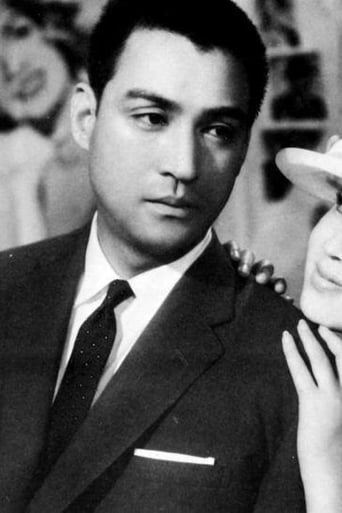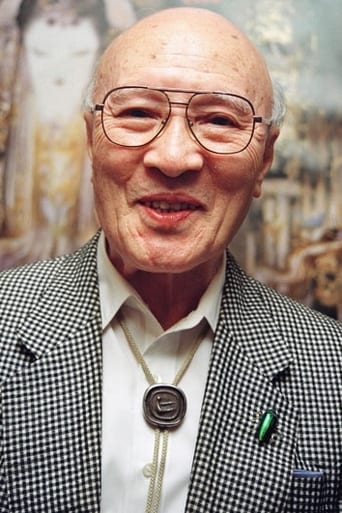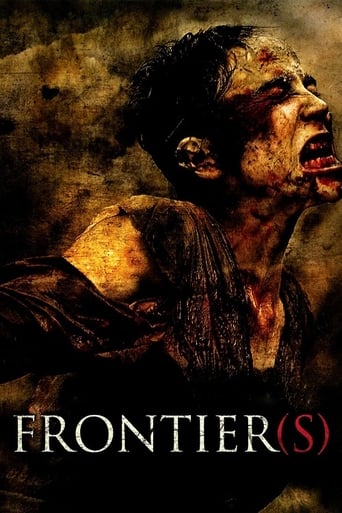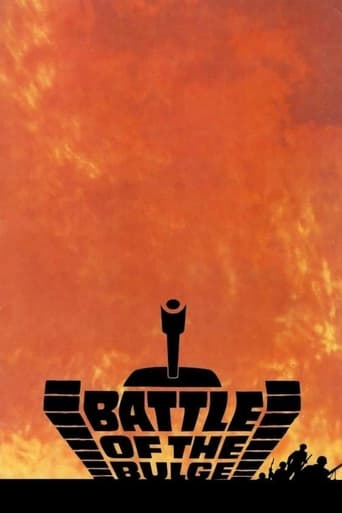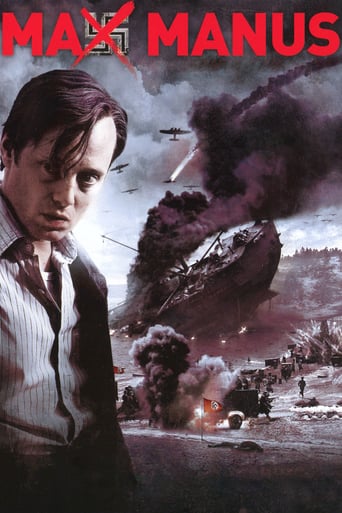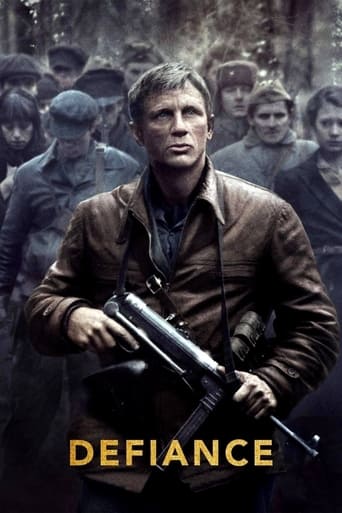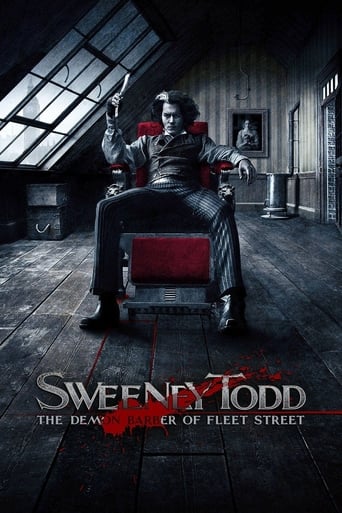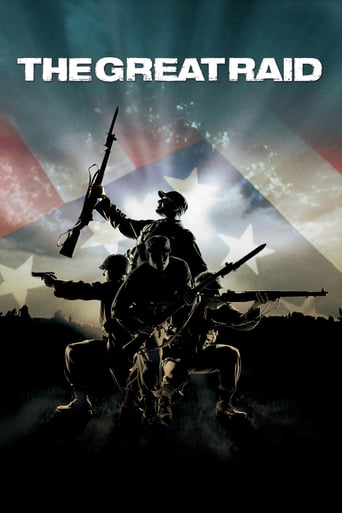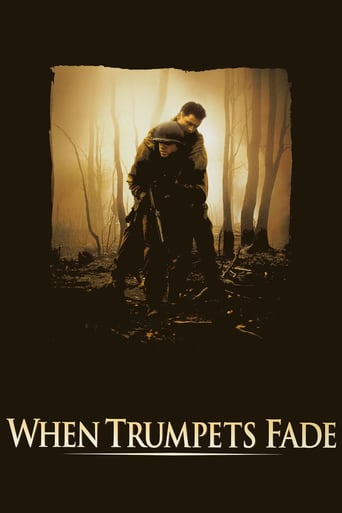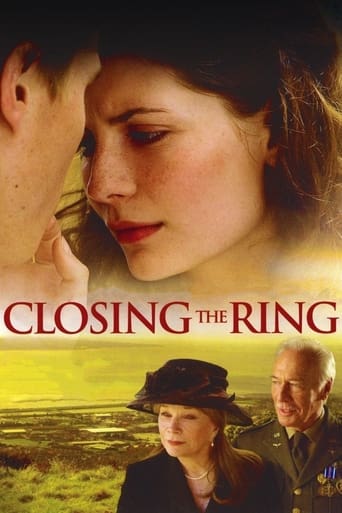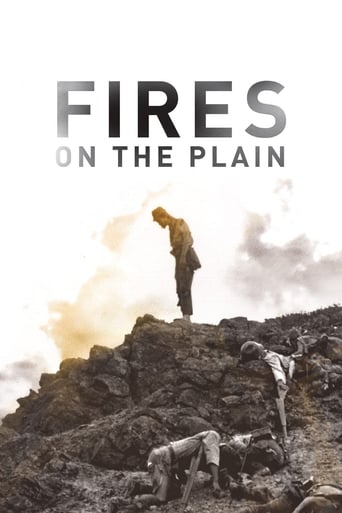
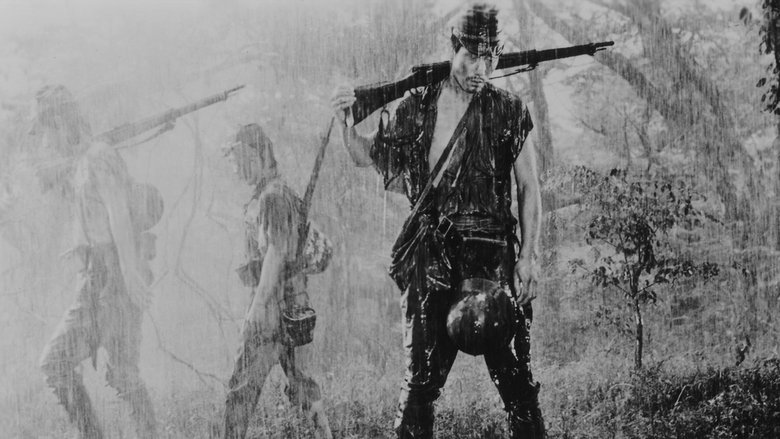
Fires on the Plain (1959)
In the closing days of WWII, a Japanese soldier afflicted with tuberculosis is abandoned by his company and left to wander the Philippine island of Leyte.
Watch Trailer
Cast


Similar titles
Reviews
the audience applauded
best movie i've ever seen.
When a movie has you begging for it to end not even half way through it's pure crap. We've all seen this movie and this characters millions of times, nothing new in it. Don't waste your time.
The movie's neither hopeful in contrived ways, nor hopeless in different contrived ways. Somehow it manages to be wonderful
1853. US Navyman Commodore Matthew Perry makes his way into Japan and forcibly opens the country up to international trade. After two and a half centuries of self-imposed, peaceful isolation, Japan henceforth begins emulating Western powers. After the Meiji Restorations of 1868, Japan not only conclusively shifts from a feudal society to a market economy, but embarks on an endeavour to assimilate Western ideas, technological advances and customs. To the chagrin of the Western Empires, it also spends the next few years aggressively expanding into neighbouring territories, encroaching upon Korea, Taiwan, China, Vietnam, Burma and the Philippines, all countries which had themselves been taken over by Europeans and Americans. The apple in Japan's eye is China, though, which Russia, France, Germany, England and the US are busy dividing between themselves via "Open Door Policies". These policies grant multiple international powers access to China, all to the detriment of China itself.Ticked off that the big Imperialists aren't letting Japan get down to some sweet Imperialism of its own, Japan launches the First Sino-Japanese War (1894) and the Russo-Japanese War (1904). Ironically, these expansions are funded by British and American bankers (Jacob Schiff famously provided 200 million in loans), to such an extent that Japan's outstanding foreign loan indebtedness grows from near zero in 1896 to 421 million yen in 1904 and then 2600 million yen in 1913. After about two decades of further pressure cooking, a complex cocktail of forces and/or contradictions eventually lead to all the world's major nations getting their collective grooves on. In Japan's case, a mixture of nationalism, exceptionalism, racism, stupidity, economic competition, mounting debts, the need to open up foreign markets to prevent local markets from collapsing (historial J.A Hobson would famously call capitalist oligarchy, rather than national pride, the "taproot of imperialism"), blockades, Western bullying and sheer confusion leads to a state of Total War. The end result of WW2? The two Imperialist upstarts – Japan and Germany – get bombed back to the stone age, whilst the old Imperialist Empires go broke and are forced to scale back their domains. The United States emerges as top dog.Two of the major war films in Japanese post-war cinema were "Fires on the Plain" and "The Burmese Harp", both by director Kon Ichikawa. Released in 1956, "Harp" follows Private Mizushima, a lowly member of Inouye Company. Mizushima plays a lute, whose music becomes Ichikawa's metaphor for a humanity which is suffocated during war time. The film's awash with bleak landscapes, craggy, war-torn and steeped in death, a canvas which the lute attempts to hold back with an aesthetic of its own. But it's no use. "Soil is blood-red," a title-card reads, "so are rocks.""Harp" finds Ichikawa drawing parallels between Japanese and British soldiers, the fighting class on either side identical in their humanity. Its climax points to Japanese concentration camps, the scientific barbarism of the atomic bombs and finally to monastic Buddhism, Mizushima's newfound path. It's a path which divides Mizushima from both his comrades and an increasingly secular Japan. If warfare remains the music of the gun, Mizushima's Buddhism embodies the music of the lute, an aural flame which he dedicates his life to fanning."Harp's" overriding tone is one of sadness. "Fires on the Plain" (1959), however, is suffused with blunt cruelty. It begins with a slap to the face and then the introduction of Private Tamura, a young man stationed in the Philippines. Tamura, we learn, has been ordered to kill himself with a grenade if he fails to admit himself to a hospital for healing, an absurd situation which informs the rest of Ichikawa's film. Whilst Tamura's countrymen prefer death to the dishonour of capture, Tamura rejects the nationalism and indomitable Yamato-damashii spirit of the army. He sees no dishonour in staying alive, and will do anything to survive. "Fire" thus offers the reverse of the spirituality and positive affirmation of Ichikawa's "Harp". It stresses the corporeal, the physical, its tone is nihilistic, and Tamura will cross any barrier in the name of self preservation, unlike Mizushima, who challenges himself and others to live humanely even within evil circumstances. Lost in a nightmarish odyssey, Tamura stumbles upon burning hospitals, corpses and vampire-like soldiers who cannibalise flesh, his narrative serving to undermine any measure of value or nobility wrongly ascribed to warfare. The film climaxes, in a scene evocative of Sam Fuller's "Big Red One", with Tamura shot whilst trying to surrender to an American soldier. His life's been lost for nought.Aesthetically, "Harp" and "Fire" are similar. Both are melancholic, at times shocking, and carefully juggle impressive wide screen photography with blunt close-ups of haggard faces. Both also feature dated scores, dip into excessive sentimentality and feature soldiers who are more dirty, dispirited and exhausted than was typical of Western war films of the era. This is not surprising. Before the revisionist and/or counterculture movements of the 1960s, British and American war films tended to be upbeat. Even Lewis Milestone ("All Quiet On the Western Front"), would get roped into directing gun-ho flicks ("Pork Chop Hill", "Halls of Montezuma"). Italian, Polish, French and Japanese war films, meanwhile, most of which fell under the umbrella of neorealism, operated under a completely different sensibility. Indeed, directors like Masaki Kobayashi, Andrzej Wajda and Rossellini were directing whole anti-war trilogies. 8/10 – Worth one viewing. See "Paths of Glory", Suleiman's "The Time that Remains" and Kobayashi's "The Human Condition".
Napolean claimed that armies fought on their stomachs. He even plied his forces with wine the night before a battle to insure maximum energy. If NOBI does nothing else it demonstrates that the horrors of war, and the horrors of the horrors of war, are in large part a direct result of political and military miscalculation. During World War Two, the Allies were most likely the best fed and best equipped armies up until that time in history. Conversly, the Axis were generally poorly equipped and poorly fed, and this is especially true of the Japanese troops in the South Pacific and South East Asia venues. For example, the Japanese troops in Burma were given a bag of rice and expected to live off the land--beg, steal, or kill. NOBI, in essence, is a micro-view of a macro-problem. Tamura is a symbol of the result of military strategies and tactics that fail--the common man as victim. He cannot concern himself with grand events, he must survive on the most basic of levels. Yet, in all the misery and rapid decay of the Japanese war effort, Tamura tries to hold on to some semblance of human dignity in the most unthinkable situations. In Freudian terms, he has to satisfy his Ego (the self), by appealing to his Super-ego (institutionalized ethics), while satisfying the Id (hunger). Transposed to the film, he can only remain human by deciding not to eat human flesh although he is starving. In this he may succeed, although he may meet an unpleasant end. The Left Elbow Index considers seven aspects of film--acting, production sets, dialogue, artistry, character development, plot, and film continuity--on a scale of 10 for excellent, 5 for average, and 1 for it needs help. The acting, production sets, artistry, plot, and film continuity are rated average. There seems not much acting to be done, most of it consists of walking, sitting, or looking for food, with only occasional minor drama. The sets are outdoor scenes in which little can be done to change things, although the part were the Japanese soldiers cross the river is very good. The best of the artistry seems to be the good use of light and dark in a black and white film. The plot is well driven by two questions: Will Tamura die? Will he eat human flesh? And film continuity is not violated by extreme variations in the trappings that hold the movie together. There seems little character development to deal with since one seems to know pretty much how Tamura will behave from the beginning of the film, thereby rating a 1. Above average is the dialogue, most likely due to the talents of Natto Wada (screen name). I also sense that the music plays a role in the dialogue, much like a Greek chorus. The overall rating according to LEI is 5.14. Two more points need be made. In 2006, one film historian suggests the director Kon Ichiwawa implies that this 1959 film would never be allowed in 2006. If so, in my view, this brings up images of pre-WWII Japan, a not particularly pleasant prospect. And, secondly, A Japanese scholar, who happen to be a woman, told me that "Rumor has it that the Japanese lost World War Two. This is not so. Japanese men lost World War Two!" Military and political mismanagement? Or, perhaps, just the evils of war. This film is well worth seeing, and only seems to get better as time passes.
The title is a reference to the destruction of the remnants of a harvest, like rice husks, by farmers who burn them creating fires on the plains. This is a bleak tale of the destruction of the Japanese soldier.The story is set in the closing days of the Philippines campaign as a soldier with TB who returns from a hospital because since he can walk, they have no room for him. His superior officers don't want him around since he's really too sick to work or fight. Abused by his officer he's sent back to the hospital with orders to either be admitted or kill himself. They still won't take him and he's soon left to wander across the war ravaged landscape trying to find help or a place to stay or even just food. Its a bleak journey with no hope in sight and only death and man's inhumanity to man at every turn.Billed as a harrowing journey into the dark heart of man and war this is also a very funny movie. This isn't to say its not horrifying, it is at times, but its also darkly comic. How could it not be? Here is a film where madness and insanity run rampant, people are constantly trying to hustle tobacco leaves for food, trying to get even a slightly better pair of shoes, trying to remain a Japanese soldier in the face of absurdity by marching constantly but never getting anywhere and you can't help but laugh. To be sure things go darker as it becomes clear that cannibalism maybe, literally and figuratively, the only way to survive, but at the same time there is something uncomfortably funny about the human comedy.Hailed as a great anti-war film its stark photographic style makes clear the insanity of war even as it dazzles our eye with its beauty. Here we see landscapes full of bodies that include the soldier and the civilian. set amid fields forests and trees that would otherwise be, and to some extent still are, quite beautiful. Its a jarring sensation.What intriguing is that I read that this is based on a novel about the redemptive power of Christianity. The director removed all over the religious references to hope and salvation and instead used it as to show that life stinks, war stinks worse and that there is, ultimately no hope.Intellectually I admire the film, emotionally I don't. Part of it is a strident downbeat score which, for me over accentuates what we are seeing on the screen. Its almost gilding the lily since the imagery is so strong it doesn't really need to have the music force you into feeling one way or another.Is it a great film, thats for you to decide. For certain its unlike any other war film, bloody, horrific and real in ways that big budgeted films claim to be but never are. This is not for those adverse to blood and gore since its here in spades.Definitely worth a look.
This is one of the most anti-traditional war movies about was I have seen. Instead of the typical films that stress glory and perhaps super-human characters (like John Wayne), this film is the exact opposite--stressing the de-humanization that ALSO happens in war. The story concerns the Japanese who are stranded in the Phillipines after the US returned in late 1944-early 1945. By the time the movie begins, the Japanese have clearly been beaten but because of the insane logic of Bushido, they cannot allow themselves to consider surrender. At one of many poignant moments, the lead character is told at the beginning of the film to report to the hospital since he isn't capable of fighting due to his TB. The problem is that the hospital won't accept him, so his commander tells him to once again go to the hospital--and if they won't accept him he should blow himself up with a grenade! Well, this happens just in the first five minutes of the movie--a lot worse things befall this soldier and the few stragglers because they won't surrender yet they are starving. Plus, there is a case in the movie where a soldier DOES try to surrender but is gunned down. This happened a lot later in the war because so often the surrendering Japanese soldiers booby-trapped themselves to blow up when they came near. In addition, the film shows the most vivid depiction of starvation and the accompanying madness of any film I have seen. In addition, cannibalism, cowardice and betrayal all accompany this very gritty, realistic and depressingly realistic film. You simply couldn't have made a better film of this type. Horrible but great because it IS war--not a sanitized Hollywood version of war.


